Some construction industry leaders are throwing their support behind the "Yes" campaign for the upcoming Metro Vancouver transit plebiscite.
A ballot to decide on a 0.5 per cent Metro Vancouver Congestion Improvement Tax to be dedicated to the Mayors’ Transportation and Transit Plan will be in voters’ mailboxes between March 16 and 27.
"It is inexplicable why anyone in construction would not be voting yes on this issue," said Keith Sashaw, president of Association of Consulting Engineering Companies – British Columbia (ACEC-BC)
More than 1.56 million registered voters in the Metro Vancouver area will get a ballot.
"Aside from the obvious benefits of creating hundreds of jobs for construction workers and alleviating congestion on the roads so construction vehicles can get around more efficiently, it will create a more positive environment for long term growth and economic development, all of which benefit construction workers," he said.
"It is critical to look at the long term benefits rather than short term issues."
The 10-year plan has a $7.5 billion price tag and is intended to bolster the region’s transportation infrastructure. The Lower Mainland is bracing for a million new residents in the coming decades. The plan includes the Broadway subway line, adding light rail out to Langley and Surrey, replacing the Pattullo Bridge, and adding 11 new bus routes.
According to a recent study by the C.D. Howe Institute, on top of the cost of congestion due to slower travel, the hidden costs of congestion amount to between $500 million and $1.2 billion annually for Metro Vancouver.
"The economic costs of congestion – both the hidden and visible costs – are large," wrote the study’s author Benjamin Dachis.
"Reducing the hidden costs alone would enable broader agglomeration economies and new job opportunities that could raise incomes by up to $950 per year.
This increase in incomes is complimentary to the visible savings from reduced congestion."
The Vancouver Regional Construction Association (VRCA) has called on voters to support the initiative, as they see good infrastructure as key to the region’s economic health.
"We know our transportation system is already under pressure," said Clark Campbell, chair of the board of directors in a press release.
"The proposed investment in the system is critical to addressing current congestion and ensuring our infrastructure meets projected growth in the region".
However, many residents remain unconvinced.
According to a recent poll by Insight West, a majority of Metro Vancouver residents are planning to vote "No".
Insights West is a marketing research company based in Western Canada.
The online survey of a representative sample of adult Metro Vancouver residents showed that 53 per cent say they will definitely or probably vote "No", while 38 per cent will definitely or probably vote "Yes."
The results of the poll also suggested much of the opposition has to do with the region’s leadership.
Only 10 per cent of "Yes" voters have confidence that TransLink will ensure that the transportation projects are implemented properly, and a similar portion express confidence in the mayors making the best decision when it comes to funding these projects.
Four-in-five "No" voters said they do not have confidence in TransLink to do a good job and three-in-four think there are other ways to fund the projects.
In addition, almost half of "No" voters stated that they do not trust the mayors to make the best decision when it comes to funding these projects, and two-in-five said they intend to send a message to both TransLink and the mayors by voting "No."
Recently TransLink forced out longtime CEO Ian Jarvis and appointed a temporary CEO. The organization faced criticism for continuing to pay Jarvis’ $468,000 annual salary, while also paying interim CEO Doug Allen $35,000 a month during its CEO search.
This month, the "Yes" side made another attempt to address criticism.
The Mayors’ Council on Regional Transportation has appointed businessman Jimmy Pattison, one of the richest people in the country, to head up a public accountability committee to oversee the funds that will be collected if there is a "Yes" result.
"We have heard loud and clear from the people of Metro Vancouver on this question. They want assurances that the money collected from the PST increase will go to pay for the critical transportation and transit improvements needed in the region," said Mayors’ Council chair and Vancouver Mayor Gregor Robertson.
"By appointing Mr. Pattison to head up this oversight committee, we are providing voters with a concrete mechanism to monitor and ensure that the funds raised will be used for the infrastructure they are meant to pay for."
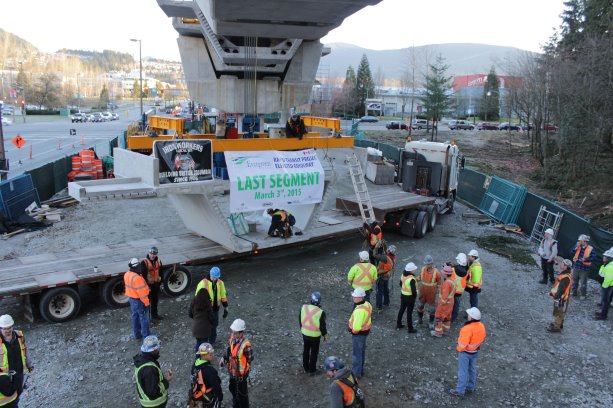
The last segment of the elevated guideway for the Evergreen Line was recently put into place. More projects like this are possible if residents vote “Yes” in the transit plebiscite.
Photo: B.C. Ministry of Transportation"

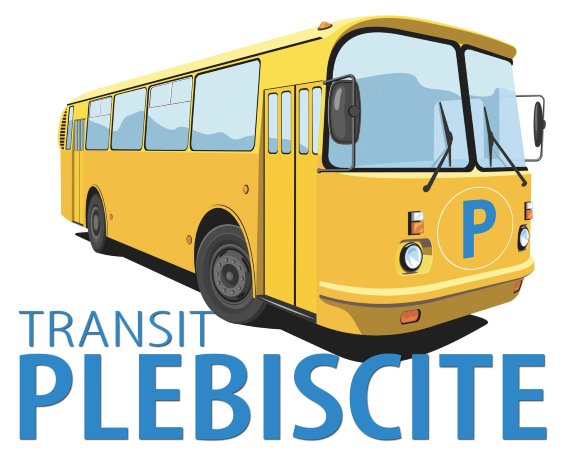


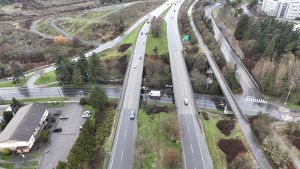


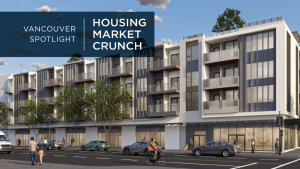
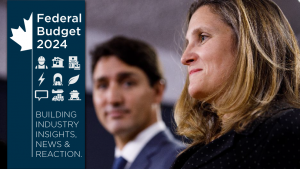

Recent Comments
comments for this post are closed